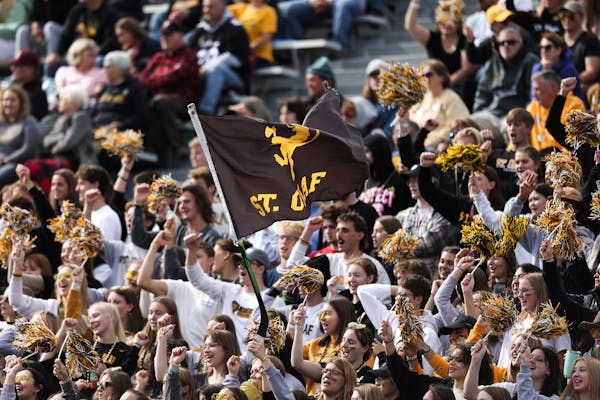A Wisconsin man testified Thursday that men in an SUV later connected to a fatal road rage shooting in Plymouth that killed a youth baseball coach pointed guns at him hours earlier near Wisconsin Dells.
Dan Knight recounted the July 6, 2021, incident at the Hennepin County trial of Jamal Lindsey Smith, 34, who is accused of killing Jay Boughton in a drive-by shooting on Hwy. 169 as the coach drove home from his teenage son's ballgame.
Knight said he was driving home from work that day – the same day Smith and two others drove from Chicago to Minnesota – when the SUV sped up and began tailgating him. Knight said he tapped his brakes.
"Next thing I know, I had a gun pointing at me," he said.
Smith has pleaded not guilty to all charges, including first- and second-degree murder. In court, his lawyers suggested someone else in the SUV could have fired the shot that killed Boughton. The other two occupants of the SUV haven't testified.
The prosecution is expected to rest its case Friday, after five days of testimony.
Judge Nicole Engisch said she expects closing arguments early next week followed by the start of jury deliberations.
Video evidence introduced Thursday shows the three men — and three firearms — in the SUV in the hours leading up to the shooting. In a series of videos from their road trip, Smith is in the passenger seat holding a handgun with an extended magazine, Brandon Smothers is in the back seat with a rifle across his lap, and another handgun with extended magazine is tucked between the center console and driver seat, with Antoine Smith, behind the wheel.
But Jamal Smith was believed to be driving at the time of the fatal shooting, according to traffic and security cameras and testimony in court.
Knight testified Thursday that the driver, who he described as a Black man with dreadlocks — Jamal Smith was the only occupant with long hair — extended his arm out the window with a handgun near Wisconsin Dells. Knight pulled out his phone to pretend he was recording to stop them from firing. "I figured I was going to get shot full of bullets," he said.
Knight said two other people were pointing guns at him, too. He called 911 at 6:33 p.m.
Defense attorney Emmett Donnelly said in cross examination that Knight initially told police he saw four or five others in the vehicle.
Prosecutor Dan Allard then asked Knight if he "ever gave the driver the middle finger?" Knight said no.
Boughton's son, Harrison 16, testified Monday that, before the fatal shooting, his dad had flipped his middle finger at the SUV after it sped up to them driving erratically.
Plymouth police investigator Nicholas Benesch was on the stand several times Thursday as he introduced videos, text messages and internet search histories from Smith's and Smothers' phones and cell phone data from Antoine Smith.
Benesch and FBI special agent Richard Fennern tracked the SUV's path from Chicago and searched for any police reports on that route from that day and found Knight's 911 call.
Smith's phone data showed he received a text on July 7 — the day after the shooting — with a link to a news report and researched it online. Prosecutor Erin Lutz said that after seeing the news reports, Smith made a video with Smothers, who is shown holding a handgun, and one of them is saying "don't play with me."
Experts testified Wednesday that Smith's DNA was found on the gear shift and steering wheel of the SUV, and gunshot residue was mostly on the front passenger door. Prosecutors allege Smith was driving and reached across the passenger seat and fired out the window.
Smith's girlfriend, Rondelle Hardin, also testified Wednesday. Prosecutors showed the jury text messages from her phone about the shooting and the SUV she rented for Smith.
"I'm scared idk what to do. I want to tell [police] but how without [Smith] knowing is my issue," Hardin wrote in a text to someone who sent her news reports of the shooting.
Engisch allowed the defense to introduce a photo of Smothers with the purported murder weapon the day after the shooting, which was similar to the gun Smith is seen with on the drive to Minneapolis. She wrote in her order that defendants accused of a crime have the right to present evidence that a third party committed the crime.

DFL leaders call for GOP Rep. Jeff Dotseth to end re-election campaign after abuse allegations surface
'Tibetan Buddhist Shrine Room' finds permanent home at Minneapolis Institute of Art
Southern Minnesota city's souped up food project aims to end hunger in the area

Facing death, Duluth woman discovers Medicaid services bill comes due posthumously

